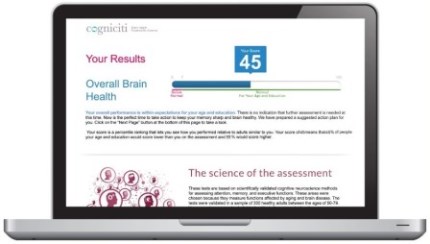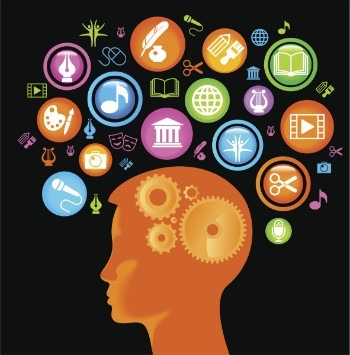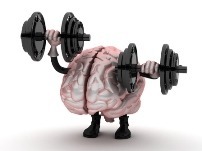Posts Tagged ‘executive-attention’
Study: Internet-based screening can help detect aging-related cognitive deficits
— We just came across a new and fascinating scientific paper, titled Development and evaluation of a self-administered on-line test of memory and attention for middle-aged and older adults, and published at Frontiers in Aging Neuroscience. Here is the very readable abstract: “There is a need for rapid and reliable Internet-based screening tools for cognitive assessment in middle-aged and older adults.…
Read MoreNext in mental health, substance abuse: Preventive interventions to strengthen working memory
— Strong working memory puts brakes on problematic drug use (Medical Xpress): “Adolescents with strong working memory are better equipped to escape early drug experimentation without progressing into substance abuse issues…Most important in the picture is executive attention, a component of working memory that involves a person’s ability to
Read MoreCan brain training work? Yes, if it meets these 5 conditions
In a modern society we are confronted with a wide range of increasingly abstract and interconnected problems. Successfully dealing with such an environment requires a highly fit brain, capable of adapting to new situations and challenges throughout life. Consequently, we expect cross-training the brain to soon become as mainstream as cross-training the body is today,…
Read MoreStudy: Promising New Neurocognitive Intervention for Preschoolers with ADHD (TEAMS)
Although medication treatment and behavior therapy provide short-term symptomatic relief for children with ADHD, such gains rarely persist after treatment ends. Because these treatments are infrequently sustained over extended periods (most children on medication do not even remain on it for a year), few individuals with ADHD receive effective treatment over the long-term. This may…
Read MoreDistracted in the Workplace? Interview with Maggie Jackson around brain health at work
Today we continue the conversation with Maggie Jackson, author of Distracted: The Erosion of Attention and the Coming Dark Age. You can read part 1 here. Q — In your Harvard Management Update interview, you said that “When what we pay attention to is driven by the last email we received, the trivial and the…
Read MoreTraining Attention and Emotional Self-Regulation — Interview with Michael Posner
(Editor’s Note: this is one of the 20 interviews included in the book The SharpBrains Guide to Brain Fitness: How to Optimize Brain Health and Performance at Any Age) Michael I. Posner is a prominent scientist in the field of cognitive neuroscience. He is currently an emeritus professor of neuroscience at the University of Oregon (Department…
Read More



